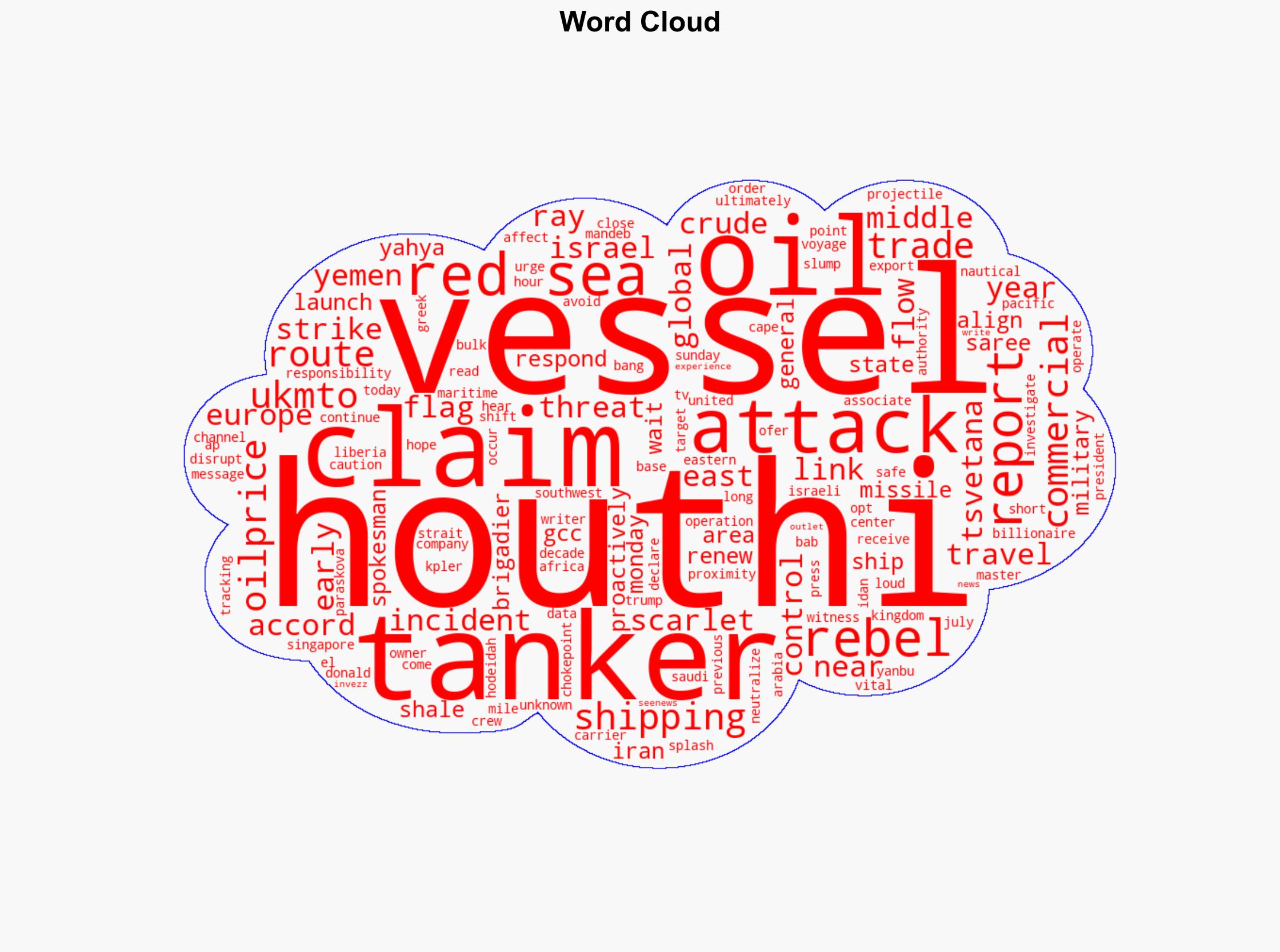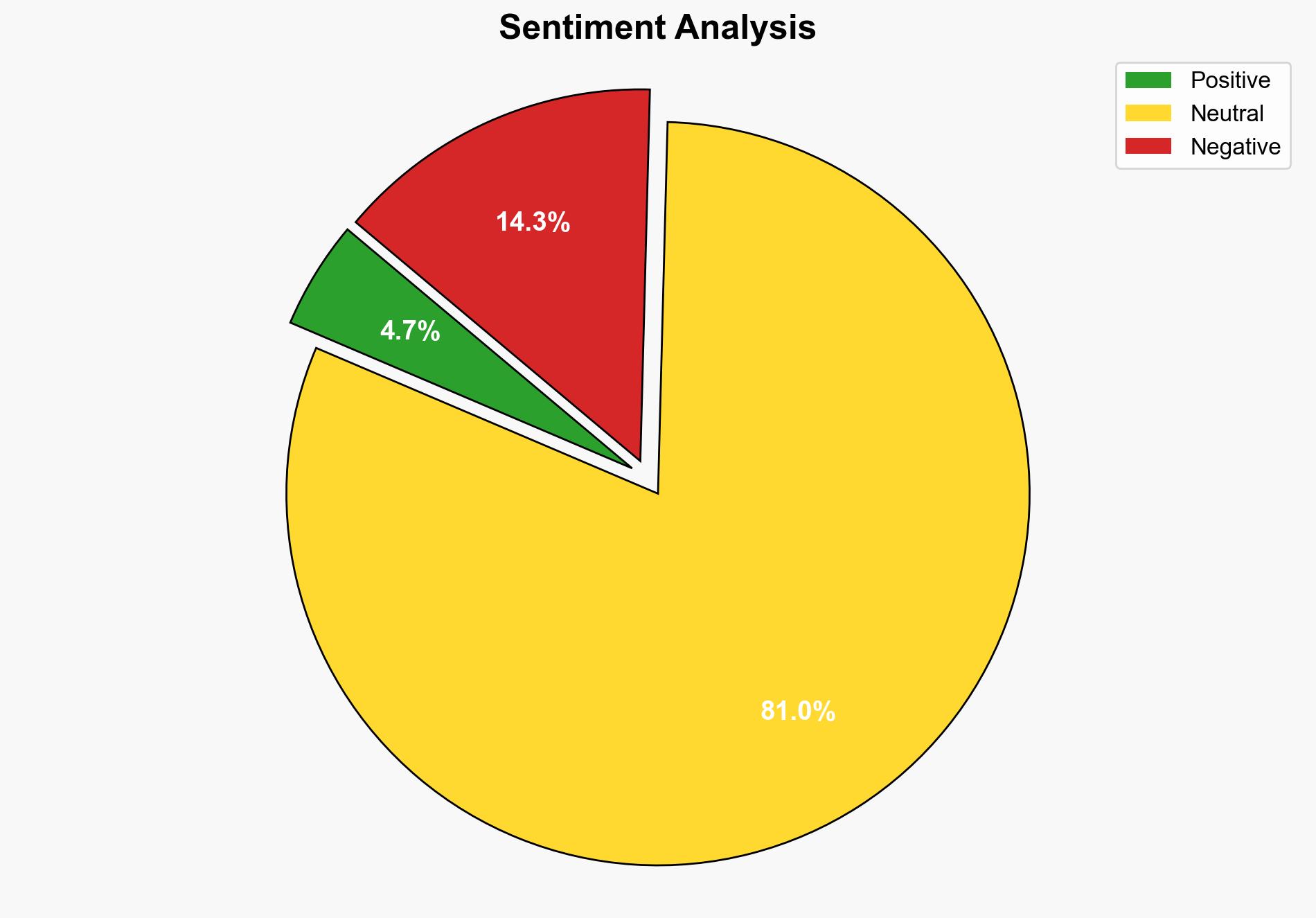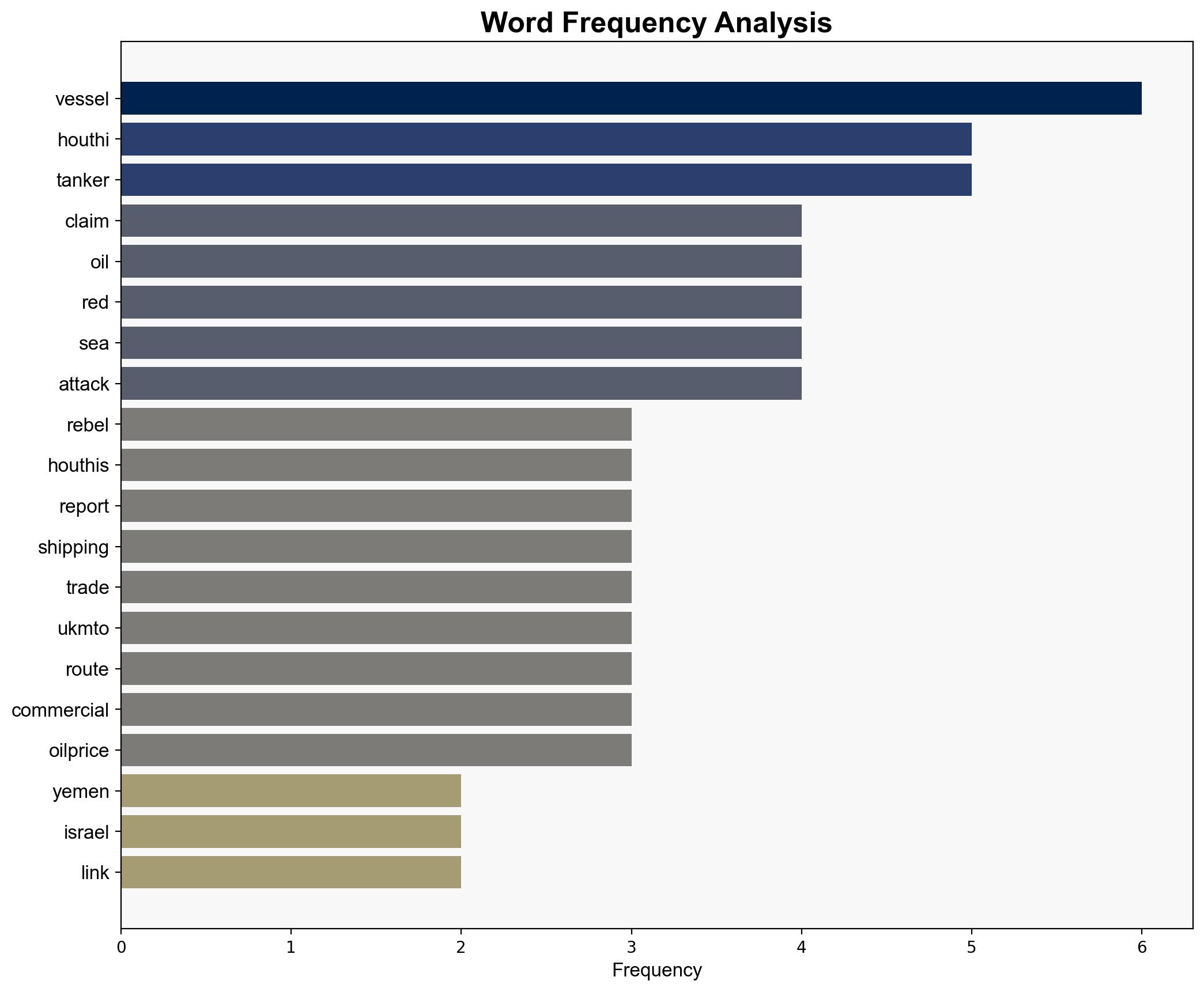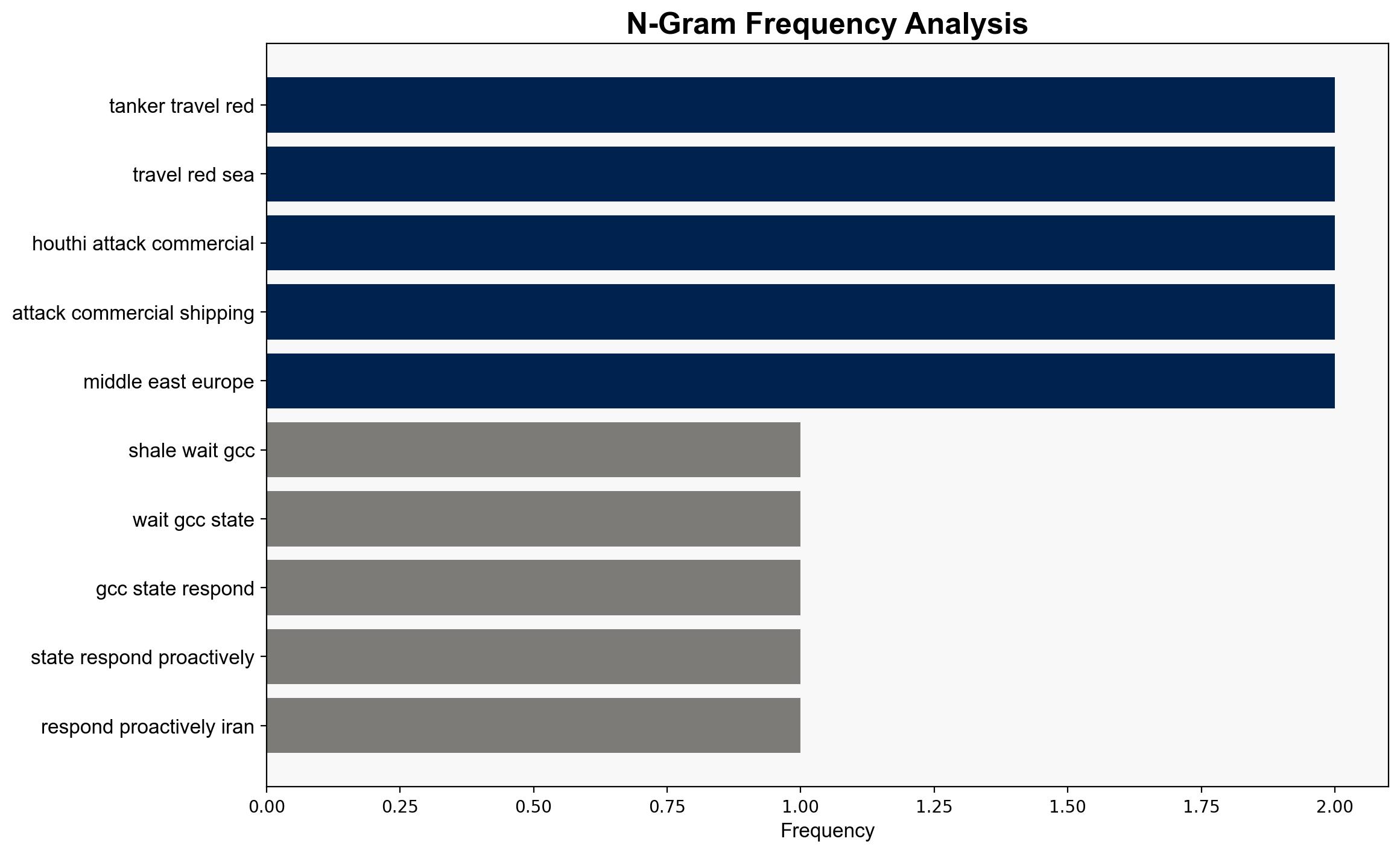Houthis Claim Missile Attack on Israel-Linked Oil Tanker in Red Sea – OilPrice.com
Published on: 2025-09-01
Intelligence Report: Houthis Claim Missile Attack on Israel-Linked Oil Tanker in Red Sea – OilPrice.com
1. BLUF (Bottom Line Up Front)
The most supported hypothesis is that the Houthis are leveraging the attack to assert influence and disrupt maritime trade routes, potentially with Iranian backing. Confidence level is moderate due to limited direct evidence of Iranian involvement. Recommended action includes increased maritime security measures and diplomatic engagement to de-escalate tensions.
2. Competing Hypotheses
1. **Hypothesis A:** The Houthis independently executed the attack to disrupt global trade routes and assert regional influence.
– **Supporting Evidence:** The Houthis have a history of targeting commercial vessels in the Red Sea, and the attack aligns with their strategic objectives to disrupt trade.
2. **Hypothesis B:** The attack was orchestrated with Iranian support to indirectly pressure Israel and its allies, leveraging the Houthis as a proxy.
– **Supporting Evidence:** Iran’s known support for the Houthis and the strategic benefit of pressuring Israel through indirect means. The vessel’s connection to an Israeli billionaire may be a deliberate target choice.
3. Key Assumptions and Red Flags
– **Assumptions:** Hypothesis A assumes the Houthis have the capability and intent to act independently. Hypothesis B assumes Iranian strategic interests align with such an attack.
– **Red Flags:** Lack of concrete evidence linking Iran directly to the attack. The vessel’s ownership structure could be misrepresented or misunderstood.
– **Blind Spots:** Potential underestimation of other regional actors’ involvement or influence.
4. Implications and Strategic Risks
– **Economic Impact:** Disruption of Red Sea trade routes could increase global oil prices and affect supply chains.
– **Geopolitical Tensions:** Escalation could lead to broader regional conflicts involving Saudi Arabia, Israel, and Iran.
– **Psychological Impact:** Increased fear among maritime operators could lead to higher insurance costs and rerouting of vessels.
5. Recommendations and Outlook
- Enhance maritime security in the Red Sea, including increased patrols and surveillance.
- Engage in diplomatic efforts with regional stakeholders to reduce tensions and prevent escalation.
- Scenario Projections:
- Best Case: Successful diplomatic interventions lead to de-escalation and resumption of normal trade routes.
- Worst Case: Continued attacks lead to significant disruption in global oil supply and regional military confrontations.
- Most Likely: Sporadic attacks continue, leading to heightened security measures but no major escalation.
6. Key Individuals and Entities
– Idan Ofer: Israeli billionaire linked to the vessel’s ownership.
– Yahya Saree: Houthi military spokesman claiming responsibility for the attack.
7. Thematic Tags
national security threats, cybersecurity, counter-terrorism, regional focus





